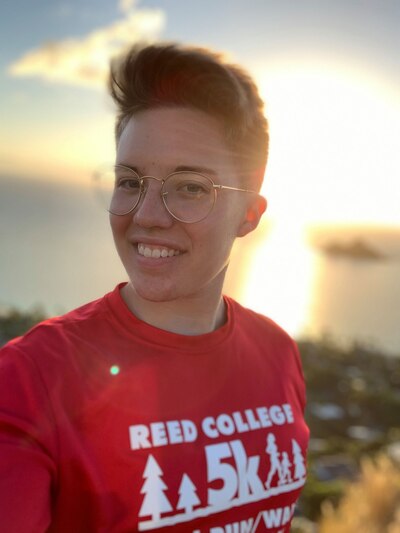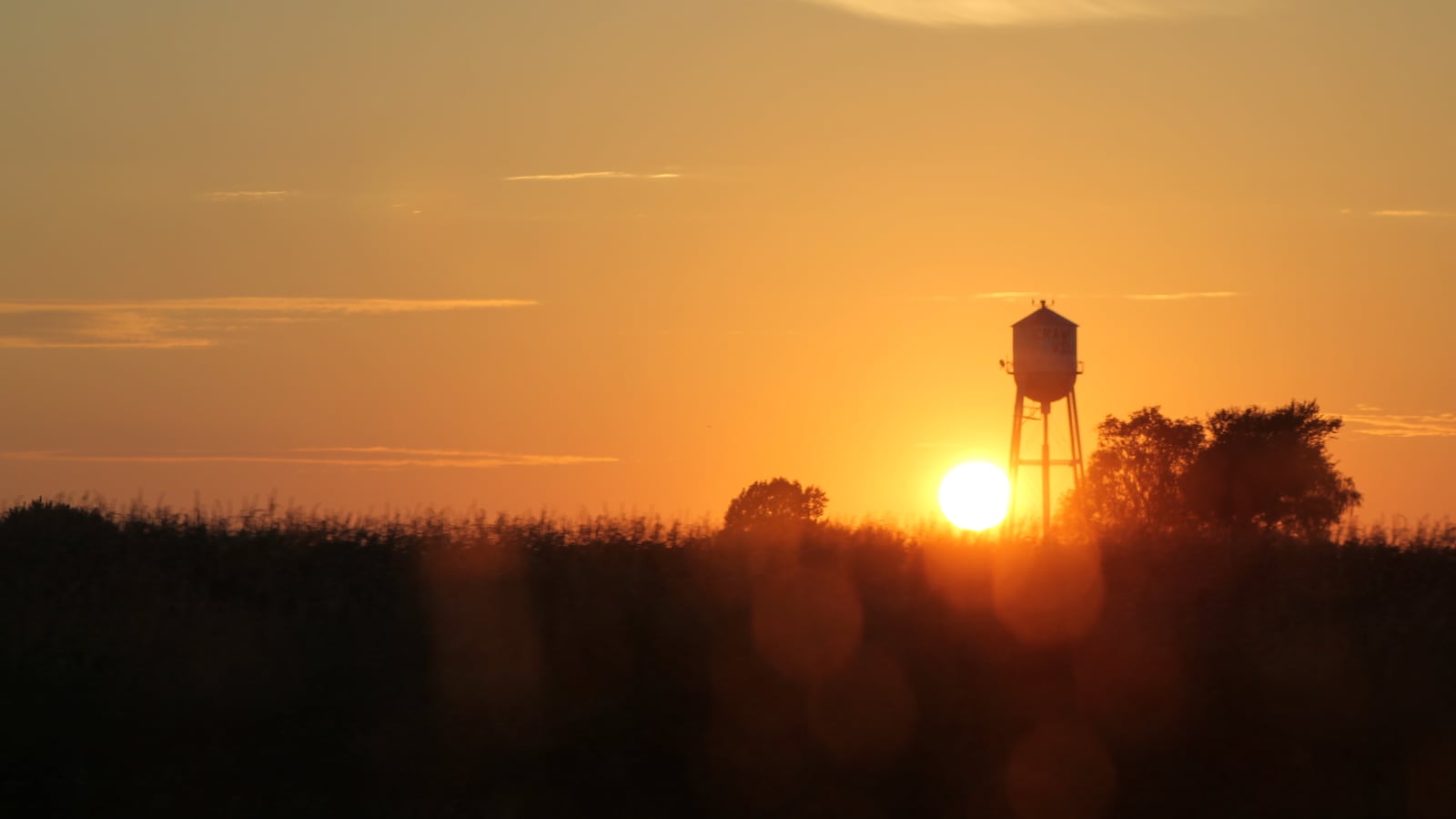As a phone line bridged the miles between a former colleague and me, I mentioned to him that I was living temporarily in Iowa. “Are you at Iowa City?” he asked, a polite way of inquiring whether I was at the prestigious Iowa Writers Workshop. “No, no,” I said with a laugh, “south central. My girlfriend grew up here.”
“I figured it would either be language or love that brought you to Iowa,” he replied.

It was love. Melissa and I have been together for almost two years, and she and I planned to divide our gap year before law school and graduate school, respectively, between our hometowns — hers in the rural Midwest, and mine in California’s industrial East Bay. While in Iowa, I planned to substitute teach.
I’m earning my credential to teach secondary English in California. I’d worked at preschools and summer camps in my ethnically and socioeconomically diverse hometown. In Oregon, where I went to college, I’d also worked at a middle school after-school program that enrolled mostly low-income Black and Latinx students. Now I’d be working with predominantly white and rural schoolchildren halfway across the country.
I wanted to work as a substitute teacher for the instructional skills the job would help me develop. Because although I’d been in charge of many groups before, rarely had I worked as the only adult in a room full of young people. I also sought to develop what the education community considers the bedrock skill for substitutes: the ability to think on my feet. If I was going to live in an area 2,000 miles from home, I thought, I had to explore and learn as much as I could about its people and the forces that shape Iowa’s landscape.
Throughout most of the fall of 2020, Iowa was one of the only states in the nation to have both in-person K-12 classes and no statewide mask mandate. During that time, I subbed in all manner of classrooms, from preschool through 12th grade. I worked across three rural districts, one of which funneled in students from two adjacent small towns. Some of the teaching struggles of this year felt small and amusing, like how I found it difficult to remember students’ names when I’d only ever seen most of them with half their faces covered up. Or how I used the alphabet letters on a rug in a kindergarten classroom to encourage social distancing: “Remember to stay on your letter while I read to you!” But other events unfolded that made me feel like my job was requiring me to swallow rocks.
There was the third grade student who drew me a card with a heart on it, and whose grandfather died of COVID-19 during the three days that I subbed for her class. There was a middle school science classroom full of boys who backed me into a corner with aggressive chanting. (I won’t detail the chant, just that it happened on Election Day.) There were the empty seats sprinkled throughout each classroom that I encountered, and the students explained that it was like this every year, not just due to the pandemic. Rural poverty and lack of access to resources make it difficult for a lot of farm kids to make it to school.
Add to this mosaic of obstacles the mixed experience of being a visibly queer person in a deep-red area. Each morning, I would arrive at work a button-down shirt, with my hair in its close-cut fade. Children often asked me, “Why do you look like a boy?” If another adult overheard, their instinct was to quiet the student and apologize to me. But I was never bothered by young people’s genuine curiosity. As a masculine-presenting gay woman, I do look like a boy, and children should not be punished for acknowledging that. Attempting to make my queerness invisible is another form of erasing it. I’d easily answer the students, “I look like a boy because I want to. Some girls look like boys, and some boys look like girls. I’m a girl, though. Thanks for asking.”
At one elementary school, I would wait on the sidewalk after class with students who teachers referred to as the “town” kids, or those who lived within the area’s small, contained suburb. Many students’ parents rolled through the parking lot in a brigade of mud-sprayed RAMs and Toyotas to retrieve them. I’d have to physically acknowledge each student before they run off to greet their parent to make sure everyone is accounted for, and because high-fives are newly forbidden, we bump elbows instead. On occasion, I saw parents recoil. But their children usually didn’t treat me with hostility.
On one of my first days subbing, I sat outside a high school lunchroom with a new freshman, whom I discovered had also just moved to Iowa from far away. We ate our lunches together that day. Throughout the semester, when I’d see him in the hallways, he’d nod warmly. When a high school senior with cerebral palsy told me that her classmates teased her for having crooked fingers, I showed her that my own hands could be similarly bent. Her elation was unforgettable. I taught seventh graders slang terms in Spanish and they showed me their routines for 4-H.
Friends back home ask me if there are other queerfolk in south central Iowa. My first instinct is to think of people my age and say no, I haven’t encountered any, until I realize that I’ve met and connected with an LGBT student at almost every job assignment. They never had to come out to me, or me to them; we simply saw the same unspoken rhythms in one another. One of them, a fifth grader, gripped my jacket with a cookie-sized hand during recess while she whispered suddenly that she wanted to date her best friend, but her mom wouldn’t let her. She can be whoever she wants to be, I told her: “Don’t be afraid.” I only subbed in her class for a day, but I think often about her and other students’ radical openness with me, given the position I occupied as a temporary blink in their school lives. Students seemed ready to share things about themselves with me more quickly, since as a person in her 20s, I differed from the older authority figures typically populating their class environments. I held the immense privilege of being able to briefly glimpse the daily challenges of many young lives.
The difficulties of my experience live alongside the rewards. When I reflect on this time I spent teaching, two things immediately come to mind: one, the number of small empty wooden seats in the front rows of classrooms. And two, the students who would eagerly wave at me when they recognized me in their hallways, their eyes crinkling in a smile behind their masks. Despite rural learning barriers and the daunting task of teaching during a pandemic, my work felt profound. I learned as much from the kids as they learned from me. In early December I moved home to the Bay Area to be near family again and prepare for graduate school. I just began working (fully through Zoom) at a school in Oakland as a resource specialist for students, an experience both like and unlike classrooms in the Midwest.
Teaching in rural Iowa taught me more than I could have imagined about the bridges that can be formed across social, cultural, political, and age divides. The kids I met taught me that spontaneity and honesty aren’t just useful for surviving haphazard lesson plans, but that these skills matter in creating organic connections with people unlike yourself. The poignancy and complexity of this experience is something I’ll carry with me both as a burgeoning English teacher, and as a culturally plural individual in today’s messy world.
Jacey de la Torre (she/her/hers) recently graduated with a bachelor’s degree in English from Reed College in Portland, Oregon, and is currently living in her Bay Area hometown while applying to graduate school to become a credentialed teacher. In addition to writing, her passions include running, reading, and cooking unnecessarily elaborate Mexican meals for her family.



